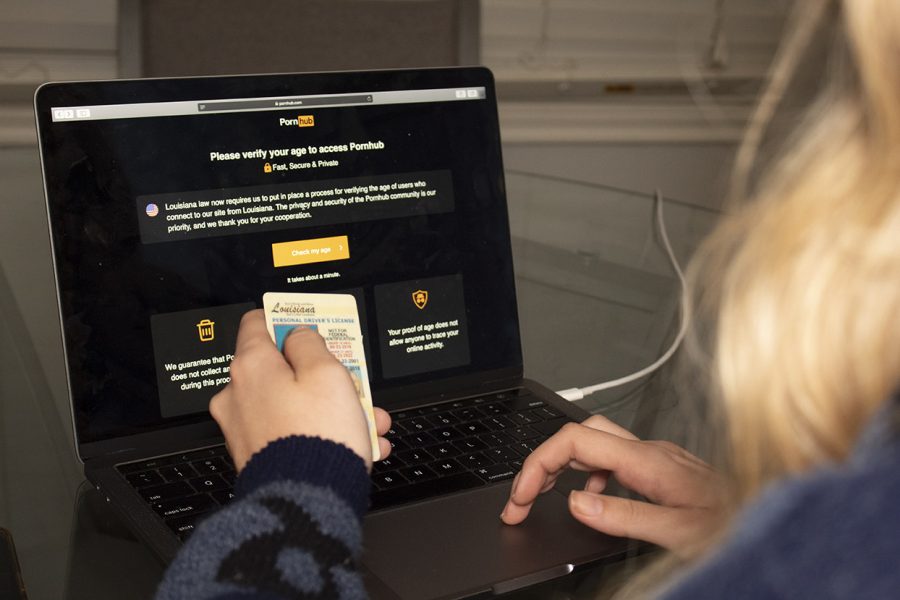Loyolans speak on Louisiana porn law
All attempts to access pornography sites are blocked without age verification in Louisiana. As the new Louisiana law came into effect, it is now required to present age verification through a digital ID.
March 23, 2023
A new law requires Louisiana residents to provide their government-issued IDs to view mainstream pornography websites, but Loyola professor Ty Lawson said the government should be prioritizing combating sex trafficking which pornography contributes to.
The new instated law, Act 440, has already gone into effect for sites such as PornHub and Redtube. Louisiana was the first state to enact this law back in January and since then, seven states have since followed.
The act states that pornography contributes to the hyper-sexualization of minors, impacts brain development, sexual functioning, and leads to unhealthy relationships in the future.
Lawson, who has created a course at Loyola called “Media that Matters: Examining Forced Labor in the Bayou,” and has spoken with several organizations that advocate against human trafficking, said that this act will not help Louisiana’s pornography consumption, which has been dubbed a public health crisis, according to the New York Post.
“People who want to see that are going to see that regardless,” Lawson said. “It’s easy to fake documents to lie about age. That is not a priority.”
The pornography industry is one of the leading forms of sex trafficking, according to the National Human Trafficking Hotline. Lawson said that he believes that the priority for the government should be to have “tougher laws and prosecute the person making the content.”
Sex trafficking is a $150 billion industry, according to the Polaris Project, an organization working to raise awareness and prevent it.
Another advocacy organization, Fight The New Drug is working to raise awareness about the dangers of the pornography industry and its connections with sex trafficking.
One website they have targeted is OnlyFans, a site commonly referred to as “ethical porn.” The site claims to verify its users to ensure they are of legal age. However, an investigation by the BBC revealed that OnlyFans’ age verification process has not prevented users from uploading child pornography. Like many who try to access PornHub, users have been caught using fake identification to upload content, according to Fight The New Drug.
A report by The National Strategy for Child Exploitation Prevention and Interdiction showed that the levels of buying and sharing child pornography are increasing with the growth of the Internet and online communities.
“The Internet and advances in digital technology have provided fertile ground for offenders,” the report said.
On top of how easy it can be to use a fake ID to access these websites, one Loyola student has already found a way out of showing their ID.
Loyola student Pat Doe, whose name has been changed for privacy reasons, said they also believe that this law is not helpful for the prevention of porn consumption and that they believe this law is targeting the wrong group.
“If the government is going to create a law that is actually going to sufficiently help abuse in the porn industry, they need to have laws that focus on disciplining porn companies more severely, especially when it comes to issues of rape and sex trafficking,” Doe said. “That law does nothing, because all you need is a VPN to get around it.”
Doe said they believe anyone who knows how to access these online communities will be unaffected by Act 440.
“(The new law) does nothing. Any person using the dark web or some part of the Internet that is not easily accessible to the general public uses a VPN. That law does not protect that, does not get rid of that, and does not impact that,” Doe said.










Booooo • Mar 23, 2024 at 6:41 pm
Boooooo